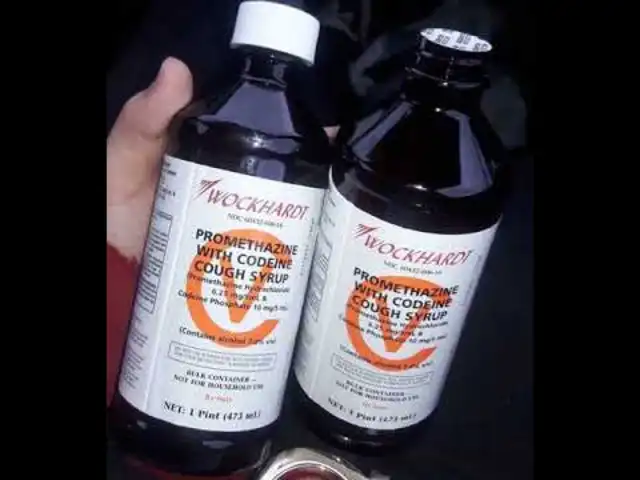When your teenager is prescribed tenofovir, it’s normal to feel overwhelmed. You’re not just learning about a new medicine-you’re navigating a lifelong conversation about health, identity, and independence. Tenofovir isn’t a cure, but for teens living with HIV or at high risk of it, this drug can be life-changing. It’s one of the most trusted antiretrovirals used today, and millions of adolescents worldwide take it safely every day. But knowing how it works, what to watch for, and how to help your teen stay on track makes all the difference.
What is tenofovir and why is it used for teens?
Tenofovir is an antiretroviral drug that blocks HIV from multiplying in the body. It comes in two main forms: tenofovir disoproxil fumarate (TDF) and tenofovir alafenamide (TAF). Both are used in combination with other HIV medicines, never alone. For teens, it’s often part of a daily pill that also includes emtricitabine or lamivudine-like Truvada or Descovy.
Doctors prescribe it for two reasons: to treat HIV in teens already infected, or to prevent infection in those at high risk (called PrEP). Teens who have sex without condoms, use injection drugs, or have a partner with HIV are often candidates for PrEP. In Australia, PrEP is available through the PBS for people under 18 with a doctor’s prescription, and it’s covered for eligible teens.
Unlike older HIV drugs, tenofovir has a high barrier to resistance. That means it’s harder for the virus to adapt and break through. For teens who are just starting treatment, this gives them a strong foundation. It’s also one of the few antiretrovirals approved for use in adolescents as young as 12, based on extensive clinical trials.
How does tenofovir work in a teen’s body?
Inside the body, tenofovir acts like a fake building block. HIV needs to copy its genetic material to spread, and it uses a special enzyme called reverse transcriptase to do it. Tenofovir tricks this enzyme into grabbing the fake block instead of the real one. When that happens, the virus can’t finish copying itself, and its spread stops.
What makes tenofovir different for teens is how their bodies handle it. Adolescents are still growing. Their kidneys, liver, and bones are still developing. That’s why doctors start with lower doses and monitor closely. TAF, the newer version, is designed to be more targeted-it delivers the drug where it’s needed with less stress on the kidneys and bones. Many teens now start on TAF instead of TDF because of this.
It takes about 7 days for tenofovir to build up to protective levels in the body for PrEP. For treatment, it can take weeks to lower the viral load enough to be undetectable. That’s why sticking to the schedule matters more than ever during the first few months.
Common side effects and what to watch for
Most teens tolerate tenofovir well. But side effects can happen, especially at the start. The most common ones include:
- Nausea or upset stomach (usually fades after 2-4 weeks)
- Headaches
- Diarrhea or loose stools
- Fatigue
- Mild dizziness
These aren’t signs the medicine isn’t working-they’re just the body adjusting. But there are rarer, more serious side effects that need attention:
- Reduced kidney function (signs: swelling in ankles, unusual tiredness, changes in urination)
- Bone density loss (more common with TDF than TAF)
- Lactic acidosis (rare but dangerous: rapid breathing, muscle pain, nausea, cold extremities)
If your teen has a history of kidney problems, bone disorders, or hepatitis B, tell the doctor. Tenofovir can reactivate hepatitis B if stopped suddenly, so never skip doses or quit without medical advice.
Regular blood tests every 3-6 months check kidney function, liver health, and bone markers. These aren’t just routine-they’re how doctors catch problems early.

How to help your teen take tenofovir every day
The biggest challenge isn’t the medicine-it’s the routine. Teens are busy. They’re juggling school, friends, sports, and growing independence. Forgetting a pill isn’t just a mistake-it can lead to drug resistance.
Here’s what actually works:
- Link it to a habit. Take the pill right after brushing teeth or with dinner. Consistency beats alarms.
- Use a pillbox. A weekly box with morning and night slots helps. Some have alarms built in.
- Set phone reminders. Use a shared calendar or app like Medisafe or MyTherapy. Let your teen pick the tone-it makes it feel like theirs.
- Keep extras handy. One pill in their backpack, one at school, one with a friend. Travel? Pack double.
- Don’t shame missed doses. Ask, “What got in the way?” instead of “Why didn’t you take it?”
Studies show teens who take tenofovir with family support are 3x more likely to stay on track. That doesn’t mean hovering. It means being calm, consistent, and curious.
PrEP vs. treatment: What’s the difference for your teen?
If your teen is on tenofovir for PrEP, they’re HIV-negative but at risk. The goal is prevention. They’ll need HIV tests every 3 months and STI checks. They can stop PrEP safely if their risk drops-like after a relationship ends or if they start using condoms every time.
If they’re on it for treatment, they’re HIV-positive. The goal is to keep the virus undetectable. That means no transmission, and a near-normal life expectancy. Stopping treatment is dangerous. Even one missed week can cause the virus to rebound.
Both require regular blood tests. But only treatment requires lifelong commitment. That’s why counseling is part of the process. Many clinics offer teen-specific support groups. Talking to others who are on the same meds helps reduce stigma.
What to expect in the long term
Teens on tenofovir today are the first generation to grow up with HIV as a manageable condition. Many will live into their 70s and beyond. But long-term use means watching for changes.
Over 5-10 years, some teens on TDF may lose a small amount of bone density. Switching to TAF often reverses this. Kidney function usually stays stable if monitored. Weight gain is common with newer HIV meds-but tenofovir itself isn’t strongly linked to it.
Sexual health doesn’t stop because they’re on medication. They still need condoms to prevent other STIs. And they still need honest talks about relationships, consent, and disclosure. A good clinic will connect them with peer educators and counselors who get it.

When to call the doctor
You don’t need to panic over every little symptom. But call right away if your teen has:
- Severe vomiting or diarrhea lasting more than 2 days
- Unexplained muscle pain or weakness
- Dark urine or yellowing of the skin or eyes
- Difficulty breathing or rapid heartbeat
- Thoughts of self-harm or deep depression
These are rare, but they need urgent attention. Don’t wait for the next appointment.
Support beyond the medicine
Tenofovir is just one part of care. Mental health, housing, school, and social isolation matter just as much. Teens on HIV meds often feel different. They might hide their pills, avoid sleepovers, or feel ashamed.
Look for youth-friendly clinics. In Melbourne, organizations like The Alfred Hospital’s Adolescent HIV Program and Positive Life Victoria offer free counseling, peer mentoring, and even transport to appointments. Many have apps that let teens track meds, set goals, and chat with nurses privately.
And remember: your teen doesn’t need you to fix everything. They need you to show up-without judgment, without pressure, and with quiet confidence that they can handle this.
Can my teen take tenofovir with other medications or supplements?
Yes, but not all. Tenofovir can interact with some painkillers like ibuprofen or naproxen, certain antibiotics, and herbal supplements like St. John’s Wort. Always tell the doctor about every pill, vitamin, or remedy your teen takes-even if they think it’s harmless. Some kidney-affecting drugs should be avoided entirely.
Is tenofovir safe for teens with kidney problems?
Tenofovir disoproxil fumarate (TDF) is not recommended for teens with moderate to severe kidney disease. Tenofovir alafenamide (TAF) is safer for mild kidney issues but still needs close monitoring. Doctors check kidney function before starting and every 3-6 months after. If levels drop too far, they’ll switch meds.
Will tenofovir affect my teen’s growth or puberty?
No. Large studies show no impact on height, weight, or timing of puberty when tenofovir is used as directed. Some teens gain weight over time, but that’s true for many young people on modern HIV treatments-not just tenofovir. Growth is monitored at every visit.
Can my teen drink alcohol while on tenofovir?
Moderate alcohol is usually fine, but heavy drinking increases the risk of liver damage, especially if your teen has hepatitis B or C. Alcohol can also make side effects like nausea worse. The safest approach is to avoid binge drinking and talk openly about why it matters.
What happens if my teen misses a dose?
If they miss one dose, they should take it as soon as they remember, unless it’s almost time for the next one. Never double up. For PrEP, missing one dose isn’t a disaster, but missing more than two in a week reduces protection. For treatment, missing doses regularly can lead to drug resistance. Talk to the clinic if missed doses become a pattern-they’ll help find a better system.
Is tenofovir covered by insurance or government programs in Australia?
Yes. Both TDF and TAF are listed on the Pharmaceutical Benefits Scheme (PBS) in Australia. Teens with a Medicare card pay the standard PBS co-payment (under $30 per script). PrEP is also covered for eligible teens under 18 with a doctor’s prescription. Some clinics offer free or low-cost access through government-funded programs.
Next steps for parents and caregivers
Start by asking your teen’s doctor for a copy of the prescription and the patient information leaflet. Write down the names of all the medicines in the regimen. Schedule the next blood test and mark it on your calendar.
Find a youth-friendly clinic. Ask if they offer peer support groups or online chat services. Connect with other parents through organizations like AFAO or Positive Life Victoria. You’re not alone.
Most of all, treat this like any other health journey-no more, no less. Your teen doesn’t need to be perfect. They just need to know you’re there, no matter what.





Scott Dill - 30 October 2025
Tenofovir changed my life when I started it at 16. I was scared AF, but my doc made it feel normal-like taking vitamins. Now I’m 22, in college, and my viral load’s been undetectable for 5 years. It’s not magic, but it’s close. Just take it. No shame, no drama.
Also, yeah, the first week sucked-I threw up twice. But after that? Zero issues. My mom even started using the same pillbox as me. Weird, but it worked.
MOLLY SURNO - 31 October 2025
Thank you for writing this with such clarity. As a pediatric nurse, I see too many families paralyzed by fear when HIV meds are introduced. The emphasis on routine over perfection, and the acknowledgment of emotional weight-not just clinical facts-is exactly what’s missing from most medical literature.
Parents don’t need to be experts. They just need to be steady.
Emily Kidd - 1 November 2025
omg i just found out my cousin is on tenofovir and i was like wait what does that even do?? this post is a lifesaver. i thought it was like some weird antibiotic or something. now i get it-its like a fake lego block for the virus?? that’s so cool. also, i’m telling my bro to use a pillbox, he forgets his caffeine pills all the time lol.
ps: i misspelled ‘tenofovir’ 3 times while typing this. oops.
Justin Cheah - 3 November 2025
Let’s be real-this whole tenofovir thing is a Big Pharma psyop. They’ve been pushing this drug since 2004 because it’s cheap to make and they know teens won’t question it. Kidney damage? Bone loss? They downplay it. The FDA approved it because they’re paid off. Look at the studies-only 12% of trials included kids under 16. That’s not science, that’s a cover-up.
And don’t get me started on PrEP. Why are they giving HIV meds to healthy teens? Are they trying to normalize sexual behavior? Is this part of the gender agenda? The CDC won’t tell you the truth. I’ve dug into the patent filings. TAF isn’t safer-it’s just a rebrand. They’re milking the system. Wake up.
My cousin took it for 3 months and developed tremors. No doctor would admit it. I have screenshots.
caiden gilbert - 4 November 2025
It’s wild how a little pill can carry so much weight-like a silent soldier in your bloodstream. Tenofovir doesn’t scream for attention, but it’s the reason your kid wakes up tomorrow. It’s not glamorous. No fireworks. Just consistency. Like brushing teeth, but with more existential dread and fewer minty flavors.
I used to think meds were for ‘other people.’ Now I see them as quiet rebels. Tiny acts of defiance against a virus that wants to steal your future.
phenter mine - 5 November 2025
hey i just started my son on descovy last month and wow this post is spot on. i kept forgetting to refill the script and he was so chill about it, never yelled. we use the mytherapy app and he picked the dolphin sound for the reminder. its kinda cute honestly.
also i misspelled ‘descovy’ as ‘descovy’ in the pharmacy last week. they still filled it. lol. thanks for the tip about the pillbox-bought one with the days and am/pm slots. game changer.
Aditya Singh - 7 November 2025
There is a fundamental epistemological flaw in the clinical paradigm surrounding tenofovir administration in adolescent populations. The biomedical model reduces complex psychosocial determinants of adherence to behavioral nudges and pillbox logistics, thereby pathologizing adolescent autonomy under the guise of compliance.
Furthermore, the normalization of PrEP as a public health intervention functions as a neoliberal mechanism of biopolitical control-rendering sexual agency legible only through pharmaceutical surveillance. The PBS subsidy in Australia is not generosity-it is a mechanism of population management. We must interrogate the hegemony of antiretroviral governance before we uncritically endorse it as ‘life-changing.’
Katherine Reinarz - 8 November 2025
Okay but what if your teen is secretly dating someone who has HIV and they didn’t tell you?? Like, I found a pill bottle in my daughter’s drawer and she said it was for ‘allergies’ but I KNOW. I cried for three days. Now I’m texting every teen on Instagram asking if they’re on PrEP. Is that wrong??
Also, can I just hug the doctor who wrote this? I need a hug. And maybe a therapist. And a new best friend who gets it.
John Kane - 9 November 2025
This is the kind of post that makes me believe in humanity again. Not because it’s perfect, but because it’s human.
I’m from Kenya, and I’ve seen teens in rural clinics take tenofovir with no running water, no refrigeration, no privacy. They still show up. They still take it. One girl I met in Kisumu-14, orphaned, working as a street vendor-she had her pills in a tin wrapped in cloth. Said it reminded her of her mom’s necklace.
It’s not about apps or pillboxes. It’s about dignity. You don’t need to fix everything. You just need to say, ‘I see you.’ That’s the real medicine.
If you’re reading this and you’re scared? You’re not alone. Reach out. Text someone. We’ve got you.
Callum Breden - 11 November 2025
This article is a textbook example of medical paternalism disguised as empowerment. The suggestion that ‘quiet confidence’ is sufficient for adolescents managing lifelong medication is dangerously naive. There is no ‘normal’ when dealing with a chronic condition in a population with developing prefrontal cortices. The author trivializes risk by recommending shared calendars and emoticons.
Where are the long-term cohort studies on bone density in 12-year-olds on TAF? Why is there no mention of the 2018 Lancet meta-analysis showing increased renal tubular dysfunction? This is not guidance-it is PR.
Mansi Gupta - 12 November 2025
Thank you for writing this. As someone who grew up in a community where HIV was whispered about, I wish I’d had this kind of resource when I was a teen. The part about not shaming missed doses-so important. Healing isn’t linear.
Many of us in India still face stigma even in clinics. But slowly, things are changing. I’ve started sharing this with my cousin’s daughter. She’s 15. She says she feels less alone now.
Erin Corcoran - 14 November 2025
YASSSS this is everything!! 🙌 I’m a nurse and I use this exact script with my teen patients. Pillbox + shared calendar + no shame = magic combo 💫 Also, TAF over TDF every time unless there’s a reason not to. And yes, alcohol is fine in moderation-just don’t turn it into a rager and then forget your pill 😅
PS: my 16yo client named his pillbox ‘Captain Compliance.’ I cried. literally cried.
shivam mishra - 16 November 2025
As a pharmacist in Delhi, I’ve seen teens skip doses because they’re afraid their friends will find out. One boy told me he hides his pills in his shoe because his mom thinks ‘only addicts take medicine.’
But when you explain it like this-like a shield, not a punishment-they listen. Tenofovir isn’t about being sick. It’s about being smart. And yeah, the side effects? Real. But the fear? Worse.
Tip: Use WhatsApp reminders. Everyone in India uses it. Even grandparents.
Alex Hundert - 18 November 2025
I’m the dad of a 17-year-old on PrEP. I used to be the guy who rolled his eyes at ‘all this emotional stuff.’ But after reading this, I realized I was treating it like a math problem: take pill, avoid risk, done.
Turns out, my kid was terrified of being seen picking it up at the pharmacy. So now, I pick it up. I don’t ask why. I just say, ‘Here.’ And sometimes, I leave a snack in the bag. Chocolate. Because sometimes, care is silent.
Niki Tiki - 19 November 2025
Why are we giving HIV drugs to American teens like they’re candy? This is why the country’s going to hell. No discipline. No values. Just pop a pill and have sex with whoever. What’s next? Free condoms in every school bathroom? We’re coddling a generation of weaklings. Back in my day, we didn’t need medicine-we needed character.
And why is Australia paying for it? That’s taxpayer money down the drain. This isn’t healthcare. It’s moral decay wrapped in a prescription.